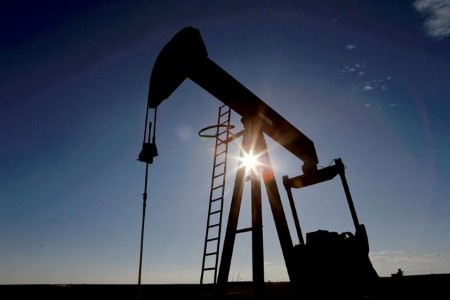




Policy Rate Updates: BSP outlook — cloudy with a chance of rate cut
 DOWNLOAD
DOWNLOAD

January Economic Update: Growth slows, prices rise
 DOWNLOAD
DOWNLOAD

Inflation Update: Up, up, and away?
 DOWNLOAD
DOWNLOAD


Oil settles mixed after hitting 7-week high on strong China outlook

NEW YORK, Jan 23 (Reuters) – Oil prices settled mixed on Monday, retreating as investors cashed in on a jump to a seven-week high on optimism about a possible recovery in demand of top oil importer China as the economy recovers this year from pandemic lockdowns.
Brent crude settled 56 cents higher at USD 88.19 a barrel. The session high was USD 89.09 a barrel, the highest since Dec. 1. US West Texas Intermediate (WTI) crude settled 2 cents lower at USD 81.62 a barrel, off the session high USD 82.64 a barrel, the highest since Dec. 5.
Prices pulled back at the end of the session as investors took profits, said Phil Flynn, analyst at Price Futures Group.
Still, the market wants to preserve long positions in case Chinese growth resumes, said Sukrit Vijayakar, director of Mumbai-based energy consultancy Trifecta.
Data shows a solid pick-up in travel in China after COVID-19 curbs were eased, ANZ commodity analysts said in a note, pointing out that road traffic congestion in the country’s 15 key cities so far this month is up 22% from a year ago.
Crude oil prices in much of the world’s physical markets have started the year with a rally as China has shown signs of more buying and traders have worried that sanctions on Russia could tighten supply.
“While the (China) reopening itself will no doubt prove to be complicated, particularly over the holiday season, early indications suggest there has been a rise in activity, meaning the economy could perform better,” said OANDA analyst Craig Erlam.
Brent is expected to move back into a range between USD 90 and USD 100 as the oil market tightens, Erlam said.
Demand for products has lifted the oil market and refining margins, Flynn said. The 3-2-1 crack spread, a proxy for refining margins, rose to USD 42.18 per barrel on Monday, the highest since October.
The European Union and Group of Seven (G7) coalition will cap prices of Russian refined products from Feb. 5, in addition to the price cap on Russian crude in place since December and an EU embargo on imports of Russian crude by sea.
The G7 has agreed to delay a review of the level of the price cap on Russian oil to March, a month later than originally planned, to provide time to assess the impact of the oil products price cap.
In India, crude oil imports rose to a five-month high in December, government data showed on Monday, as refiners stocked up discounted Russian fuel amid a steady increase in consumption in the country.
(Reporting by Stephanie Kelly in New York; additional reporting by Ron Bousso in London, Mohi Narayan in New Delhi and Sonali Paul in Melbourne; Editing by David Goodman, David Gregorio and Mark Potter)
This article originally appeared on reuters.com





 By Reuters
By Reuters